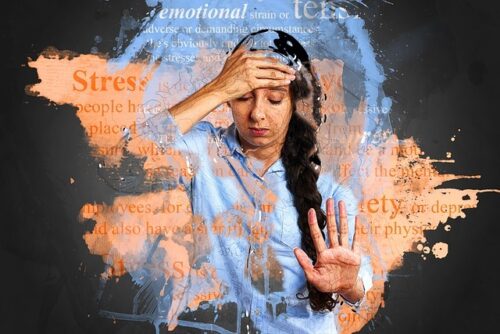At some point in our lives, everyone encounters anxiety, stress, mood swings, and other types of emotional pain. Whether it’s due to personal loss, relationships, money problems, professional setbacks, rejection, or any other reason, we can mostly recover in the end. But occasionally, we could require a bit more assistance to accomplish so.

Perhaps you can’t seem to “snap out of it” because you feel down or empty. Alternatively, you may be observing unfavorable tendencies in your lifestyle that you find difficult to alter. There are instances when mental or emotional anguish is visible. Sometimes, though, it is more difficult to identify them. Your ideas, feelings, and actions directly impact your energy, productivity, overall health, and other factors.
To make the most of your counseling or therapy sessions, select the appropriate course of mental health treatment and assess your advancement are all necessary skills. Pick a confidante with whom you feel comfortable and with the necessary experience to guide you in making positive life adjustments. A skilled therapist aids in your growth and increases your self-awareness.
Do I Need Therapy?
You can manage obstacles and deal with stressors and everyday challenges skillfully if you take good care of your psychological well-being. It’s vital to take care of your mental health and get assistance if you think things are getting out of control because of this. Your doctor may have previously suggested therapy can help in managing symptoms if you have a diagnosed (or suspected) mental health issues like drugs or alcohol substance use, anxiety, or depression. Even in the absence of a mental health diagnosis, therapy can still be a beneficial choice. A lot of people (children, teens, and adults) who attend family therapy do so to address common issues like self-doubt, relationship issues, or stress at work. In trying times, such as a divorce or the loss of a loved one, some people seek help from therapy.
If you are experiencing mental illness and emotional issues, therapy may be a useful solution. You frequently feel better by sharing your ideas and feelings with a loving and supportive individual. Speaking up about your concerns and discussing issues that are bothering you can be extremely therapeutic in and of itself. Furthermore, it feels wonderful to be heard and feel that someone else wants to support and look out for you.
Speaking with close family members and friends about your issues can be quite beneficial, but there are moments when you need emotional support that those close to you can’t give. Speaking with someone who is a counselor or therapist can be beneficial if you need further assistance, a different viewpoint, or professional advice through email, text message, or video conference. Friends and family support is vital, but therapy is something else entirely. Professional therapists are skilled listeners with specialized education who can identify the core of your issues, overcome emotional obstacles, and lead positive life transformations and additional resources.
These are some indicators that therapy may be necessary.

You’re Having Difficulty Regulating Your Emotions
A brain-related condition called emotional dysregulation indicates that you struggle to control your emotions. It frequently indicates brain disorders or variations in how your brain evolved or functions. Except in extreme cases, it’s generally not an extremely serious ailment. When you have emotional dysregulation, you usually experience overly strong emotions reacting to a trigger. As a result, you could think their feelings are uncontrollable. In addition, you can find it difficult to identify your feelings and experience confusion, guilt, or tension about your actions.
Everyone experiences sadness, anxiety, and anger from time to time, but it’s crucial to monitor how frequently or how strongly these feelings occur. It’s possible that you were born with stronger emotional reactivity to past traumatic events, engrained childhood habits, or even genetic predispositions. You require treatment to confront and alter these unfavorable ideas and behavioral habits.
You’re Super Overwhelmed
Everyone has experienced feeling overburdened by an excessive amount of work or school-related tasks. Chronic stress can be detrimental to your health, whether or not it is present is a clear cause for your extreme overwhelm or overabundance of tasks on your plate. Thus, it’s critical to figure out how to handle it.
Remember that stress can cause you to behave less attentively, become more tired, and have problems with short-term memory. However, it can also result in long-term problems, such as hastened cognitive degeneration. An overwhelming emotion or experience profoundly impacts you, and you may find it difficult to cope. A lack of coping mechanisms can also make problems worse if a lot of stressors build up and weigh you down. As a result, counseling can assist you in addressing a variety of stressors and events in life that make you feel overwhelmed.
You’re Avoiding Being Social Or Can’t Keep Relationships
There may be a deeper cause if you isolate yourself from your partner(s) and retreat from close companions or friends. Typically, anxiety, stress, and difficulty sleeping can all be factors. As with stress and restless nights, social isolation can have unfavorable effects. Social isolation increases the risk of developing several health issues (such as chronic pain and depression). You also start gradually becoming less conscious of your own world or environment, less active, less concerned with maintaining your hygiene, and consuming less nutrient-dense foods.
Fear of being vulnerable, traumatic experiences in the past, low self-esteem, attachment anxiety, or just not feeling comfortable with usual social commitments are some typical excuses for limiting social situations and involvement. Another possibility is that you’re afraid of starting a relationship or that you won’t be able to keep up a connection. You can handle any psychological problems that are interfering with your interpersonal relationships with the help of therapy. Additionally, it might assist you in managing any social anxiety you may be experiencing.
Your Anxious Thoughts Consume You
You may frequently feel anxious and find it difficult to persuade your mind to stop worrying. However, you may be dealing with intrusive and negative thoughts and behavior if they get to the stage where they control you and interfere with your daily activities. Anxiety is a mental health issue that increases your risk of disturbing ideas. Anxious thoughts can center on a specific scenario, like a date, a job interview, or even something you did incorrectly. When you find it difficult to let go of a fear or notion and instead find yourself thinking about it over and over again, this is a classic symptom of anxiety.
A severe or overwhelming feeling of dread or terror over routine events or chores is a sign of crippling anxiety. It might be challenging to operate and manage your life appropriately if you have excessive anxiety and worry. Based on empirical evidence, therapy can assist individuals in regaining control over their lives and learning how to manage upsetting thoughts. Accepting that although your anxious thoughts may be genuine, you can’t always rely on them is a step in the healing process. Considering that they cannot regulate or manage what is happening around you.
You Don’t Care About Anything
People frequently experience indifference or apathy about various issues at different times. This could be due to several factors, including emotional exhaustion, feeling overburdened, or coping with psychological disorders like anxiety or depression and even Alzheimer’s and Parkinson’s. This usually has a lengthy lifespan. Clinical depression frequently causes one to lose interest in or enjoyment from past interests in hobbies and activities. It may be more difficult to manage stress or keep up certain relationships if you lose interest in the things and activities you used to like.
Apathy is the state in which you are unmotivated to act or care little about the events occurring in your immediate environment. It might be a sign of a more serious psychological problem or connected to other problems with physical illness and mental well-being. Relentless ones can impact your relationships, daily activities, and general well-being. Psychotherapy is an efficient therapy for this mental condition, according to research. It also revealed that most people prefer therapy over medications and that therapy has more lasting advantages than medications. But still, both treatments can work alongside each other.

You Feel Hopeless
It is normal to feel as though there is no hope and that things will never get better if you have had a significant loss, an intense life transition, or if you have a mental disorder like eating disorders, anxiety, or depression. A state of hopelessness is sadness or a lack of belief that life can be more enjoyable than it is. Unstable times, major losses, or changes to your daily routine might trigger feelings of hopelessness. These events often make it more difficult to satisfy your fundamental emotional needs, like a sense of belonging and safety, or your basic physical requirements, like food and housing.
One of the most prevalent signs of depression is feeling hopeless. In actuality, a clinical diagnosis of depression is more common among those who experience hopelessness. It would be best if you had therapy for it. A psychological expert can assist you in coping with hopelessness by exposing you to particular routines and activities where you can experiment with artistic methods of expressing your emotions, such as journaling, painting, singing, or doing physical activities that bring you joy. To divert your attention and get you to stop experiencing hopelessness, it’s much more beneficial to put these coping mechanisms into practice.
You’re Grieving
Grief therapy, like all types of therapy, can offer a secure setting for you to work with difficult feelings, thoughts, and experiences when you talk with a professional. It additionally allows you to say things to those you love during a time of mourning that you might not want to, especially if they are also hurting. You must admit that grief and suffering were integral components of the grieving process since it is crucial to recognize the feelings associated with the loss.
Emotions that are triggered by grief can be quite intense and challenging to deal with. It could be time to get help if your condition has gotten to the point where, even after a long period, you’re unable to feel significantly better or if it’s becoming a hindrance to your everyday life. You have the opportunity to cope with what you’ve lost by talking about and processing your sorrow with the support of therapy treatment. So, feel free to see a therapist.
Frequently Asked Questions (FAQs)
How do I know if I need therapy?
How does therapy help?
What is the point of therapy?
How do you know when you should be done with therapy?
How do you feel when you start therapy?
Can you get therapy if you don’t need it?
How do I know if I need therapy for my anxiety?
Is therapy helpful for everyone?
Can anyone benefit from therapy?
Why is therapy better in person?
How do therapists deal with their own problems?
How effective is therapy for anxiety?
How does therapy help with childhood trauma?
How does therapy affect the brain?
What is the process of therapy?